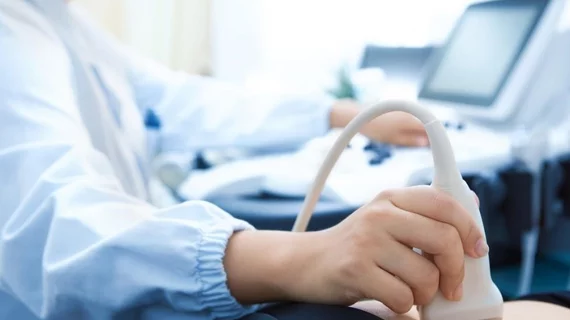Company touts novice-guided ultrasound system to remotely monitor COVID-19 patients
A Connecticut imaging company is promoting an ultrasound system that it says amateurs can guide in patients’ own homes, with the help of a remote clinician.
The Butterfly Network said such telemedicine-based imaging was made possible by recent rule-relaxing from the Food and Drug Administration last month. With the TeleGuidance, a trained clinician can scan a patient at home, without actually being present.
"We are grateful for the FDA's decisiveness during these challenging times,” Chief Medical Officer John Martin, MD, said in a statement issued May 18. "We will be able to bring the expertise of the physician to the patient instead of the other way around. This is critical in these times and extremely valuable for the future transformation of care."
Butterfly is promoting its system for monitoring COVID-19 patients, along with chronic conditions such as congestive heart failure. The company believes this is the “world’s first” ultrasound telemedicine platform allowing a “trained practitioner to connect with a novice or a peer at the bedside,” according to its website.
Recent research has highlighted ultrasound’s usefulness in monitoring COVID patients, particularly in urgent care or emergency settings. Philips earlier this month dubbed itself as the industry’s first to receive FDA clearance to market its ultrasound systems for COVID cardiac and lung complications.
The Food and Drug Administration issued its temporary emergency guidance on April 24, and said it will allow such flexibility until the public health crisis abates.

